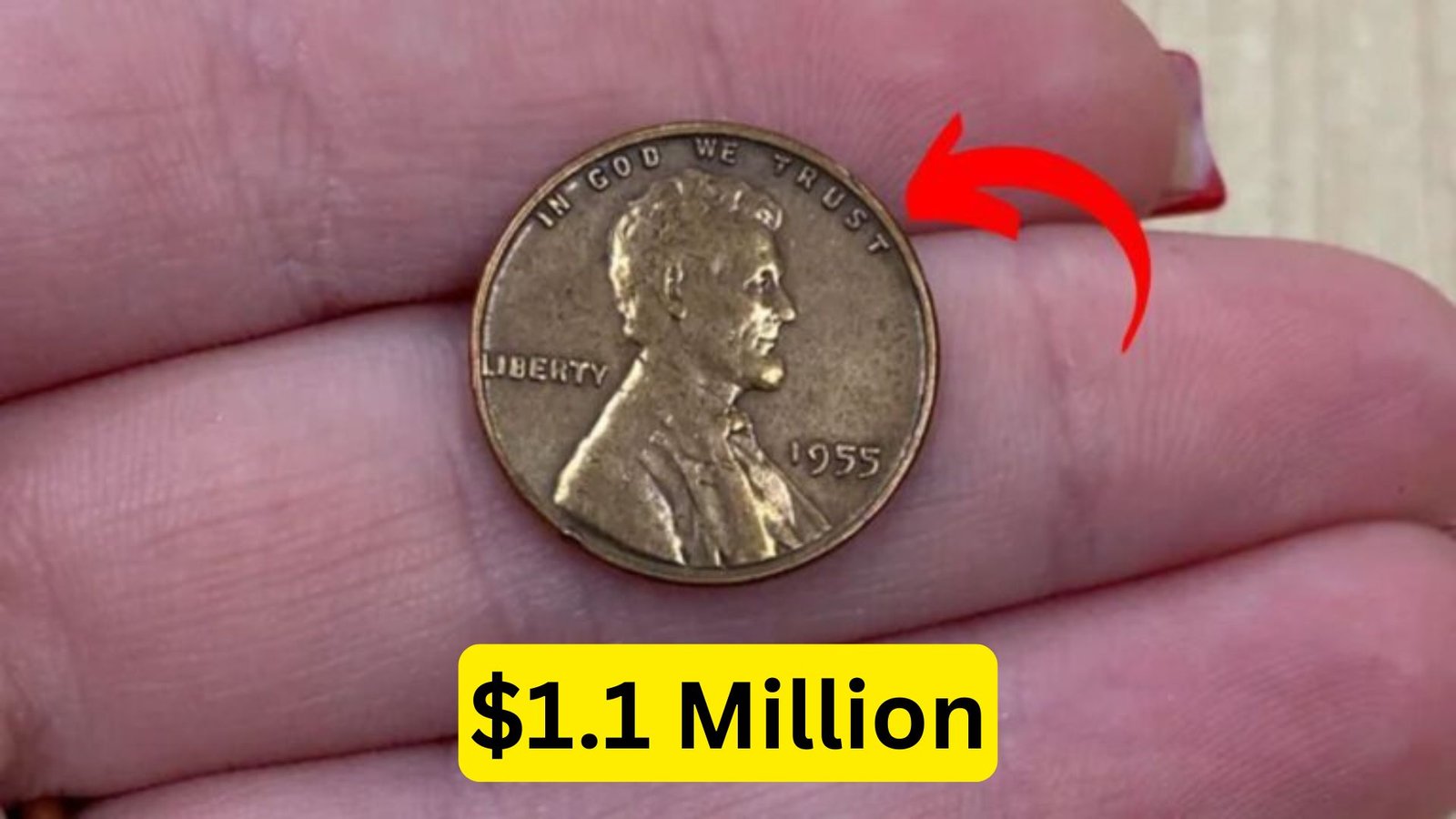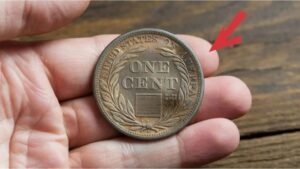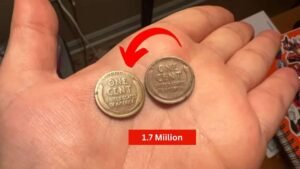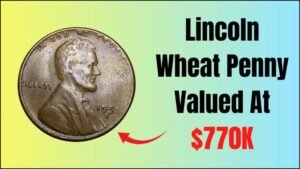The Lincoln Wheat Penny, a small coin with a big story, has captured the hearts of collectors and everyday people alike. Some of these pennies, still hiding in circulation, are worth an astonishing $1.1 million! Imagine finding a fortune in your spare change.
we’ll explore the history, value, and key details of the Lincoln Wheat Penny, why it’s so special, and how you can spot one. Let’s dive into this exciting treasure hunt with simple words and clear facts to help you understand this rare coin.
What Is the Lincoln Wheat Penny?
The Lincoln Wheat Penny is a U.S. one-cent coin minted from 1909 to 1958. It features President Abraham Lincoln’s face on the front (obverse) and two wheat stalks on the back (reverse), giving it the “Wheat Penny” nickname. Designed by Victor David Brenner, it was the first U.S. coin to show a president’s portrait, making it a historic piece of American currency.
These pennies were made in huge numbers, but certain rare versions, due to minting errors or limited production, are now worth a fortune. Some of these valuable coins could still be in circulation, waiting to be discovered in your pocket, piggy bank, or old coin jar.
Why Is the Lincoln Wheat Penny So Valuable?
The value of a Lincoln Wheat Penny depends on its rarity, condition, and specific features. Here’s why some of these pennies are worth millions:
Rarity Due to Minting Errors
Some Lincoln Wheat Pennies have unique errors that make them extremely rare. For example, the 1943 bronze penny was mistakenly struck in bronze instead of zinc-coated steel, as copper was needed for World War II efforts. Only a handful of these exist, and one sold for $1.1 million at auction.
Limited Production Years
Certain years, like 1909-S VDB (with the designer’s initials) or 1931-S, had low mintage numbers, making them harder to find. These coins are highly sought after by collectors.
Condition Matters
Coins in excellent condition, known as “mint state,” are worth more. A penny that looks brand new, with sharp details and no wear, can fetch a much higher price than one that’s scratched or worn.
How to Spot a Valuable Lincoln Wheat Penny
Could you have a million-dollar penny in your change? Here’s what to look for:
Check the Date and Mint Mark
- Date: Focus on key years like 1909-S, 1914-D, 1922 (no mint mark), 1931-S, or 1943 (bronze version).
- Mint Mark: Look for a small letter under the date. “S” (San Francisco) or “D” (Denver) can indicate rarity. No mint mark means it was made in Philadelphia.
Look for Errors
Some pennies have errors like double-stamped dates or missing mint marks. For example, the 1955 Double Die penny shows a blurry, doubled date, making it highly valuable.
Examine the Condition
Use a magnifying glass to check for wear. A shiny, crisp penny is more likely to be valuable than a dull, scratched one.
Most Valuable Lincoln Wheat Pennies
| Year | Mint Mark | Estimated Value | Why It’s Valuable |
|---|---|---|---|
| 1943 | None (Bronze) | Up to $1.1M | Rare bronze error coin |
| 1909-S | VDB | $50K–$100K+ | Low mintage, designer’s initials |
| 1914-D | D | $10K–$150K | Rare Denver mint issue |
| 1922 | None | $5K–$50K+ | Missing mint mark error |
| 1955 | None (Double Die) | $1K–$50K | Double die error |
Where to Find a Lincoln Wheat Penny
You don’t need to be a professional collector to find a Lincoln Wheat Penny. Here’s where to look:
Pocket Change
Believe it or not, some rare pennies are still in circulation. Check your change at stores, vending machines, or coin rolls from the bank.
Coin Rolls
Buy rolls of pennies from banks and search through them. This is a fun and affordable way to hunt for rare coins.
Old Collections or Heirlooms
Check old coin jars, family heirlooms, or your grandparents’ piggy banks. Many valuable pennies were tucked away decades ago.
Flea Markets and Garage Sales
People sometimes sell old coins without knowing their value. You might find a treasure at a local sale.
How to Sell a Valuable Lincoln Wheat Penny
If you think you’ve found a rare Lincoln Wheat Penny, here’s what to do:
Get It Appraised
Take your coin to a professional coin dealer or grading service like PCGS or NGC. They’ll evaluate its authenticity and condition.
Auction or Sell to Collectors
Rare pennies can be sold at auctions, through coin dealers, or online platforms like eBay. For high-value coins, auctions often get the best prices.
Protect Your Coin
Handle it carefully with gloves to avoid damage. Store it in a protective holder to maintain its condition.
Why Collectors Love the Lincoln Wheat Penny
The Lincoln Wheat Penny isn’t just about money—it’s about history and excitement. Collectors love the thrill of the hunt, the connection to America’s past, and the chance to own a piece of history. Each penny tells a story, from its design celebrating Abraham Lincoln to its role in everyday life during the early 20th century.
Tips for Starting Your Coin Hunt
Ready to start searching for a Lincoln Wheat Penny? Here are some beginner-friendly tips:
- Learn the Key Dates: Memorize the rare years like 1943, 1909-S VDB, and 1955 Double Die.
- Use a Magnifying Glass: Small details like mint marks or errors are easier to spot with magnification.
- Join Coin Communities: Online forums or local coin clubs can teach you more and connect you with experts.
- Be Patient: Finding a valuable penny takes time, but the journey is fun and rewarding.
Conclusion: Your Chance to Find a Million-Dollar Penny
The Lincoln Wheat Penny is more than just loose change—it’s a hidden gem that could be worth $1.1 million. With a bit of knowledge and a keen eye, you might discover one in your pocket, coin jar, or at a flea market. Start checking your pennies today, and who knows? You could be holding a piece of history worth a fortune. Happy hunting!




